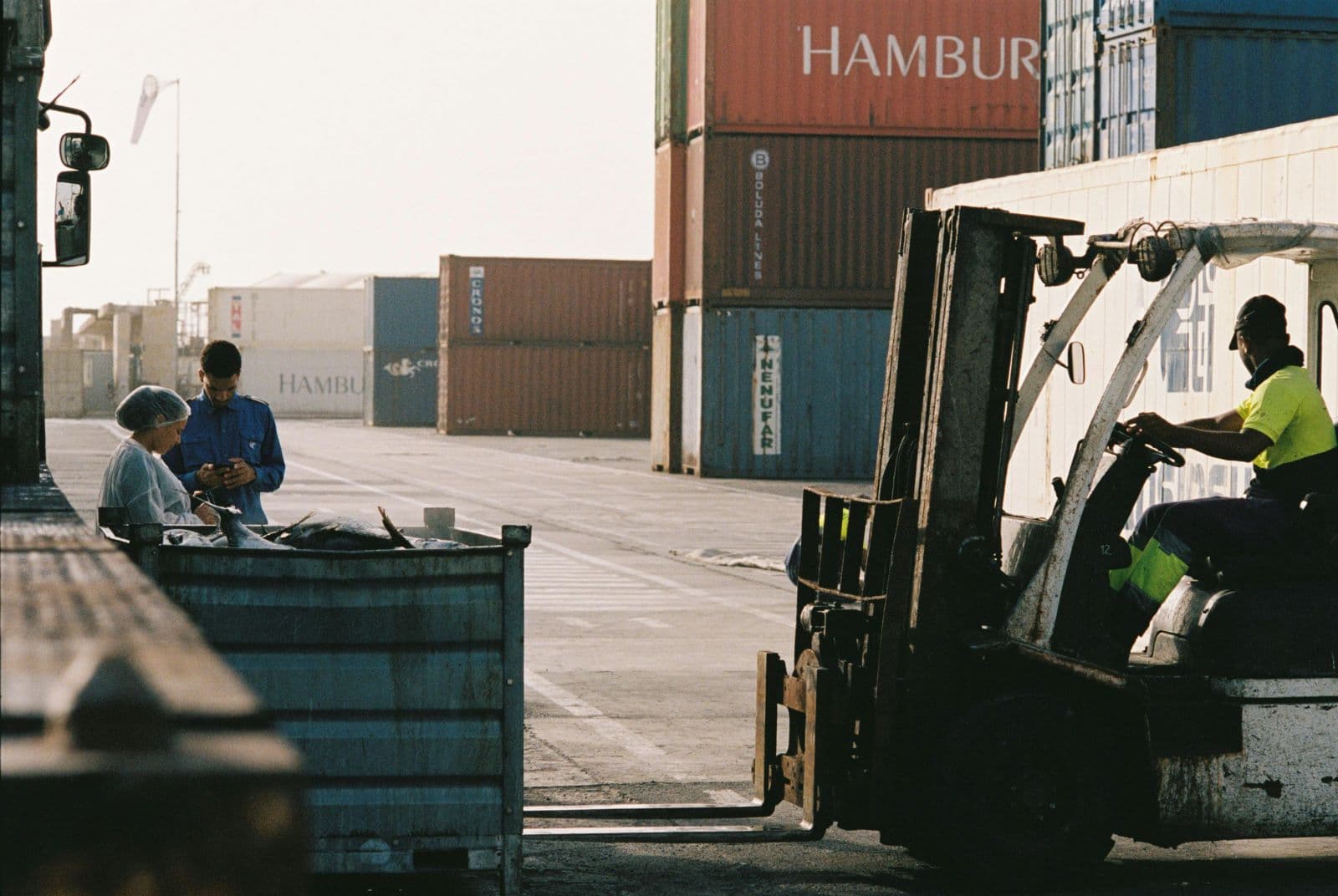The Soft Power Dimension: How COCZs Shape China's Influence on the Global Stage
Go to all updates
Unlike hard power, which uses armed might and economic pressure, soft power uses attraction and persuasion to change how other countries think and what they want. Understanding the value of "soft power," China has carefully used its Overseas Economic and Trade Cooperation Zones (COCZs) to spread its influence and reach around the world. What is "soft power"? It's a country's ability to get what it wants without intimidating others. All of these things—a country's culture, diplomacy, ideology, and economic strength—affect its impact beyond its borders. China has actively tried to use its long past, rich cultural heritage, and strong economic growth to boost its global standing through soft power.
Soft power is China's way of using stories to promote economic growth and unity that benefits everyone. As a good global actor dedicated to shared prosperity, China wants to show that it is through COCZs by investing in infrastructure, promoting trade, and creating jobs in host countries. Countries that are having trouble with their economies or lack of infrastructure respond well to this story because they see China's investment and development projects as growth engines.
COCZs boost China's soft power by spreading Chinese culture and ideals. As these areas grow into places where people, businesses, and cultures meet, they also become places where Chinese language, practices, and customs are shared. Cultural exchange programs, language classes, and cultural events put on by Chinese companies in COCZs help people in those areas feel more connected to and familiar with Chinese culture. Culture-based communication not only improves relationships between individuals, but it also helps people see China as a world leader and cultural powerhouse.
Furthermore, COCZs are very important for advancing China's plans for reforming global governance and increasing its institutional power. Beijing wants to change the rules and institutions of global government to fit its own needs and wants by making smart investments and forming partnerships in important areas like energy, infrastructure, and telecommunications. To increase its soft power on the world stage, China wants to change the rules, standards, and regulations for international trade by building COCZs in key places and using them as hubs for connectivity and economic integration.
Furthermore, COCZs are used for economic diplomacy, helping China strengthen its relationships with host countries and areas on a bilateral and multilateral level. Strategic partnerships and alliances help China grow its sphere of influence by giving host governments economic incentives, technical help, and support for building up their own capabilities. By allowing dialogue, negotiation, and consensus-building on issues of mutual interest, such as trade and investment, as well as security and regional stability, COCZs serve as a platform for diplomatic involvement and cooperation.
Notably, it is important to note that China's use of COCZs to project soft power is not completely free of problems and criticism. In host countries, China's economic activities are often accompanied by strings tied, which has led to claims of debt-trap diplomacy, resource exploitation, and neocolonialism. Aside from the lack of transparency and accountability in the operation of COCZs, there have also been worries about the environmental and social effects of Chinese
investments. People who criticize China are hurting its efforts to show that it is a responsible global actor dedicated to mutual gain and sustainable development.
The success of China's COCZ soft power policy also depends on how well it can handle geopolitical issues and local dynamics. As competitive for power and geopolitical tensions rise, China must be careful not to face backlash and pushback from host countries and regional powers. Not only that, but it also needs to handle the valid complaints and concerns that local communities and civil society groups have, making sure that its investments and activities in COCZs are socially inclusive, environmentally sustainable, and good for everyone.
Africa’s “Soft Power” Route to Economic Growth
There are important lessons that can be gained from China's approach to leveraging soft power and economic development, which is particularly relevant for Africa as it strives to establish itself as a vital player on the global stage. African states can gain valuable insights into effective techniques for shaping their own influence and furthering their development goals by studying China's experience with China-Occupied Zones (COCZs) and its broader soft power strategy.
To begin, Africa has the opportunity to model its approach to economic growth and regional integration after China's emphasis on the development of infrastructure and connectivity. Trade, investment, and people-to-people exchanges have been made easier within and beyond China's boundaries as a result of China's investments in infrastructure of many kinds, including roads, trains, ports, and telecommunications. Similarly, African nations have the ability to prioritize the development of their infrastructure by participating in programs such as the Program for Infrastructure Development in Africa (PIDA) of the African Union and the African leg of the Belt and Road Initiative. Increasing Africa's competitiveness, attracting investment, and accelerating economic growth are all possible outcomes that can be achieved through the enhancement of connectivity and the reduction of transportation costs.
To continue, Africa should learn from China's emphasis on economic diplomacy and South-South cooperation, which can serve as a source of inspiration. The strategy that China takes toward developing countries, including African nations, is defined by a pragmatic and mutually beneficial approach, with an emphasis on win-win collaboration and shared prosperity. African countries have the ability to build strategic partnerships with China and other growing powers by utilizing their natural resources, market potential, and demographic dividend. Increasing its economic resilience and diversity while simultaneously decreasing its reliance on traditional partners is something that can be accomplished by Africa through the promotion of trade, investment, and the transfer of technology.
In addition, Africa can gain valuable insights from China's emphasis on cultural diplomacy and people-to-people encounters as a means of establishing confidence and goodwill with other nations worldwide. The Confucius Institutes, language programs, and cultural exchanges that have been implemented by China have helped people all over the world get a more profound understanding and respect of Chinese culture and values. Along the same lines, African nations have the ability to utilize their abundant cultural history, which includes arts, music, and literature, in order to strengthen their soft power and encourage intercultural discussion. African states have the ability
to create cultural interchange, mutual understanding, and collaboration with the world community by demonstrating the diversity and innovation that is found inside Africa.
in more ways than one, Africa has the opportunity to investigate the possibility of SEZs serving as drivers of economic expansion and industrialization across the continent. Similar to China's SEZs, Special Economic Zones enable designated areas to attract domestic and foreign investment by providing attractive business conditions, infrastructure, and incentives. Countries in Africa have the ability to foster entrepreneurship, innovation, and sectors that are focused on exports by establishing SEZs that are customized to their specific strengths and development priorities. As hubs for manufacturing, agribusiness, technology, and services, SEZs have the potential to generate employment opportunities, encourage the development of skills, and boost overall productivity.
Along with that, SEZs can be utilized by Africa to facilitate the growth of value chains and regional integration. It is possible for African nations to facilitate international trade, investment, and cooperation by establishing connections between special economic zones and transportation corridors, logistics hubs, and industrial parks. Special Economic Zones have the potential to operate as platforms for collaboration between neighboring countries, thereby promoting joint ventures, subcontracting, and the exchange of expertise. In addition, special economic zones have the potential to entice anchor investors and lead enterprises, which can in turn stimulate the expansion of local suppliers, service providers, and supporting sectors for the region.
The deployment of Special Economic Zones in Africa is a reflection of China's strategic approach, which is exemplified by its COCZs. One notable example is the Dawa Industrial Zone in Ghana, which exemplifies the concepts of economic development and win-win collaboration that China has been advocating for. There is a glimmer of optimism in the Dawa Industrial Zone, which is located in a region that is struggling with economic difficulties and infrastructure deficiencies. This zone serves as a light of hope by attracting investment, stimulating trade, and providing job possibilities. It provides a good environment for enterprises to flourish, with advantageous business conditions, infrastructure, and incentives, similar to the economic zones that China has established. Furthermore, the Dawa Industrial Zone is a prime example of how special economic zones may aid in the process of industrialization and economic progress in Africa by encouraging entrepreneurialism, innovation, and industries that are focused on exporting. Through the demonstration of successful models such as the Dawa Industrial Zone, African nations have the opportunity to gain vital lessons from China's soft power strategy and effectively employ special economic zones to promote their development objectives.
The long and short of it all is that China's strategic deployment of COCZs as a tool for enhancing soft power is a multifaceted endeavor marked by economic, diplomatic, and cultural dimensions. By leveraging these zones, China seeks to extend its influence globally, projecting an image of responsible global leadership and fostering mutually beneficial relationships. However, criticisms regarding issues such as debt-trap diplomacy and environmental concerns underscore the complexities and challenges inherent in this approach. For Africa, lessons from China's soft power strategy, particularly in the realm of economic development through initiatives like Special Economic Zones (SEZs), offer valuable insights for fostering growth, regional integration, and
international collaboration. As Africa endeavors to emulate China's successes while addressing its unique challenges, the careful navigation of geopolitical dynamics and local concerns will be paramount in achieving sustainable development and realizing its aspirations on the global stage.
More
updates

How Industrial Parks Are Powering Economic Growth in Africa
Blog∙30th April, 2025

Addressing The Infrastructure Gaps in Sub-Saharan Africa
Blog∙11th March, 2025

Regional vs. National Approaches to Trade Facilitation: Which is More Effective for Africa?
Blog∙11th December, 2024

Earn Big with Dawa Refer & Earn: Unlock Lucrative Rewards for Every Business You Refer!
Blog∙13th November, 2024

Leapfrogging the Growth Trap: Policy Initiatives for Developing Economies in a Globalized World
Blog∙4th October, 2024
